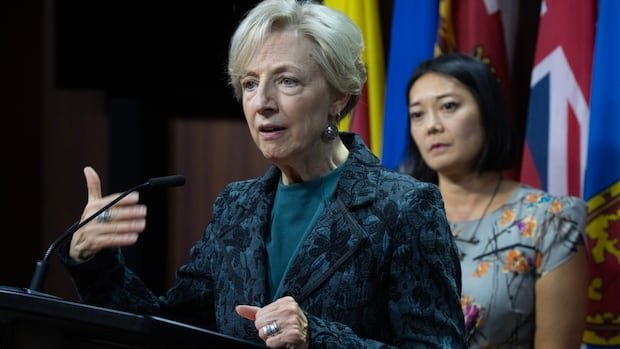Canada’s global position in terms of gender equality in politics has significantly declined in the last 25 years, prompting calls for more substantial actions to be taken. Shari Graydon from Informed Perspectives emphasized the need for tangible steps rather than mere assurances during a recent press briefing at Parliament Hill. With women holding less than one-third of parliamentary seats, Graydon highlighted that Canada falls short of its perceived leadership in gender equality.
The Inter-Parliamentary Union, an international body comprising around 200 national parliaments, currently ranks Canada 71st in female legislative representation, a sharp decline from its 28th position in 2000. As of August, women constituted 30% of the House of Commons and 55% of the Senate.
Prime Minister Mark Carney stated that the Liberal Party boasts the largest female caucus in Canadian history, accounting for nearly 40% of elected Liberal MPs. Graydon urged all political parties to adopt measures like gender quotas and electoral reforms, citing Mexico as a leading example, which achieved gender parity by incorporating it into its constitution.
Graydon advocated for parties to commit to running a minimum percentage of female candidates, regardless of the competitiveness of the riding, arguing that this approach would ensure the selection of the most qualified male candidates. She stressed that quotas, if implemented effectively, could strengthen democracy and uphold merit.
A survey conducted by Abacus Data on behalf of Graydon’s group revealed that 86% of Canadians believe gender parity in Parliament is crucial. Julie Savard-Shaw of The Prosperity Project emphasized the importance of access to childcare and remote work options in advancing women in the corporate sector, where female representation in senior positions has declined.
Liberal MP Chi Nguyen highlighted the impact of childcare and remote work on political participation, urging Canada to draw lessons from international practices. Nguyen underscored the collective responsibility of all levels of government, political entities, civil society, and communities in Canada to address the gender gap in politics.
Nguyen also raised concerns about public harassment and hostile rhetoric in the House of Commons, which deter women from seeking political office. She stressed the need for sustained dialogue with Canadians to ensure a safe environment for individuals serving the country in various capacities.

